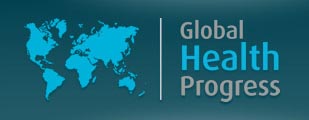Earlier this week, the United Nations announced a new plan of action designed to help fight disease resistance to artemisinin, the world’s most potent treatment for malaria. Launched by the UN World Health Organization (WHO) and the Roll Back Malaria Partnership (RBM), the groups hope to better contain and prevent resistance to artemisinins, the critical component of artemisinin-based combination therapies (ACTs), which are currently the most effective weapon in treating falciparum malaria.
The WHO’s announcement describes the plan as a five-step process which “aims to contain and prevent artemisinin resistance by stopping the spread of resistant parasites, increase monitoring and surveillance for artemisinin resistance, improve access to malaria diagnostic testing and rational treatment with ACTs, invest in artemisinin resistance-related research, and motivate action and mobilize resources.â€
Global Health Progress is hopeful that this action plan will help to ensure that developing nations continue to have access to drugs that most effectively treat malaria. Many malaria-stricken countries lack the resources needed to keep an effective health care system running smoothly. Strong, effective health systems are vital to helping those in need of access to drugs, and health care improvements made today will strengthen the ability of countries to develop sustainable systems that can meet tomorrow’s challenges. Stopping the spread of drug-resistant strains of malaria and other diseases are essential to these goals.
Investing in local R&D capacity and national research systems is another way research-based biopharmaceutical companies help strengthen health systems. Local production can play a valuable role in building overall local capacity and enabling developing countries to increase access to essential medicines.
It is the responsibility of the entire international community to facilitate access to medicines. Success depends on all sectors working in partnership; not only to make medicines more accessible, but also to ensure continued innovation into new medicines for the treatment and prevention of all diseases.
About Global Health Progress:
Global Health Progress also supports efforts to raise awareness and mobilize resources to address health challenges in the developing world by bringing local leaders together with international health experts, policymakers, donor governments, and the private sector. www.globalhealthprogress.org;  twitter.com/globalhealth; facebook.com/pages/Global-Health-Progress/124850684219049;  linkedin.com/groups?home=&gid=2972068
Via EPR Network
More Healthcare press releases

